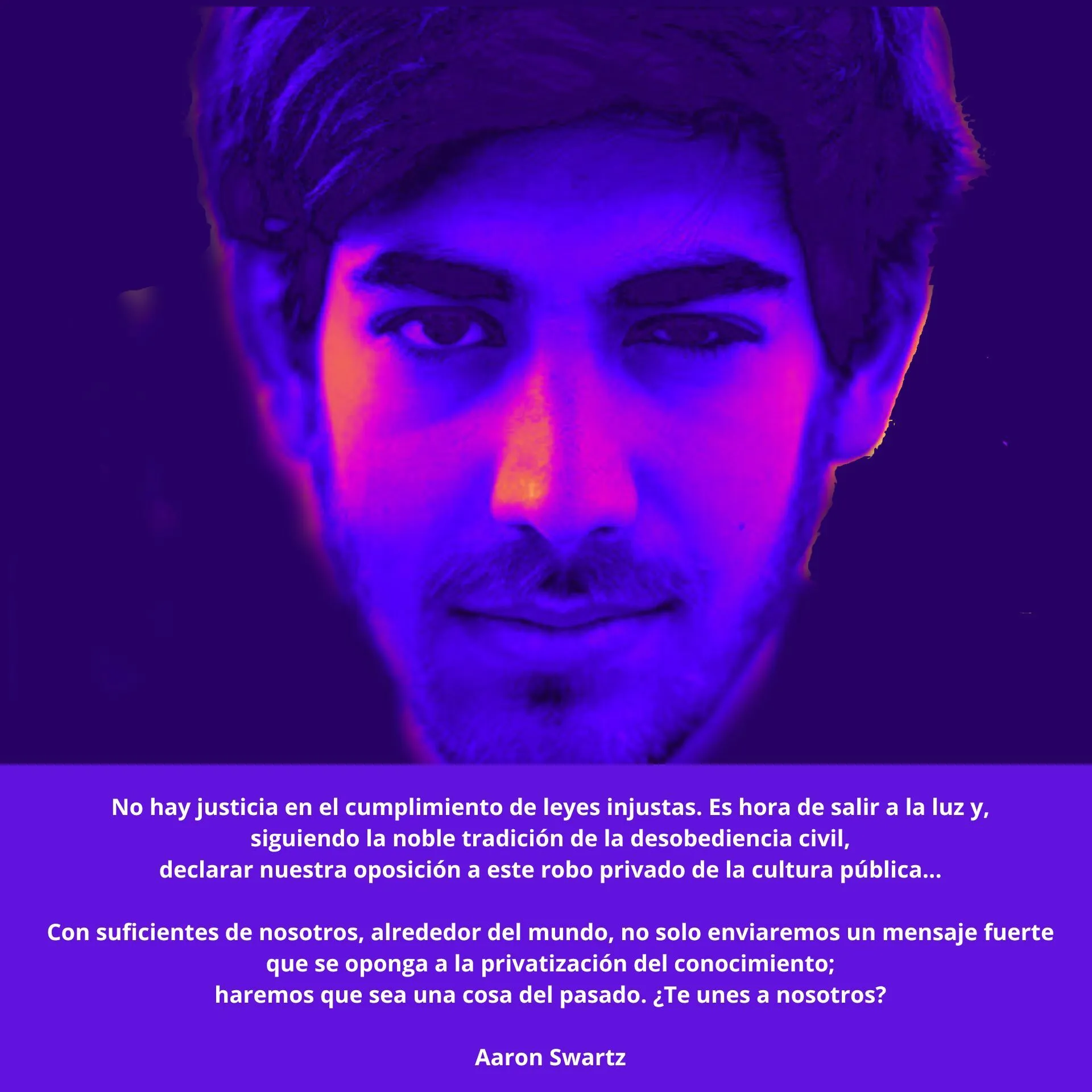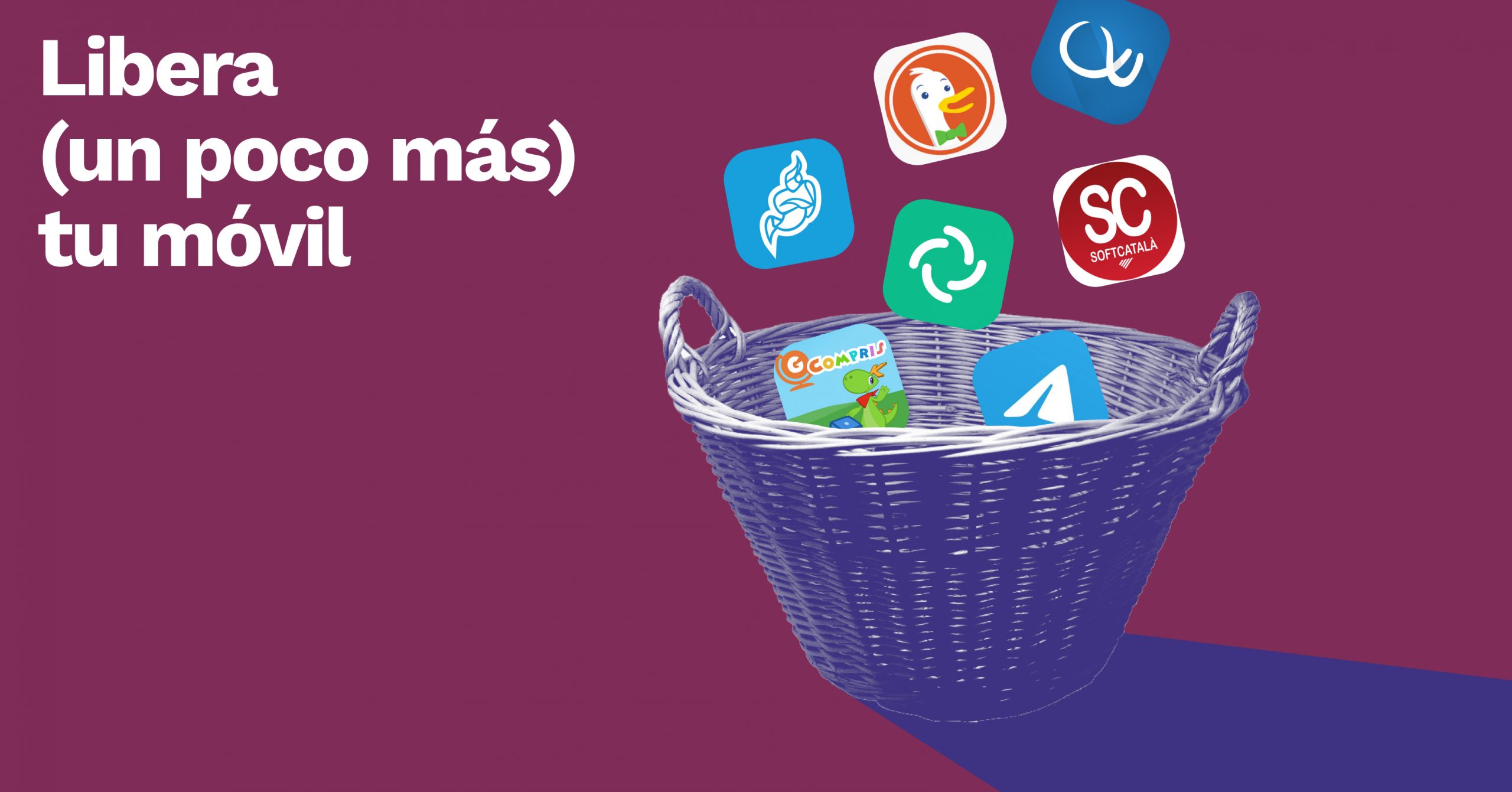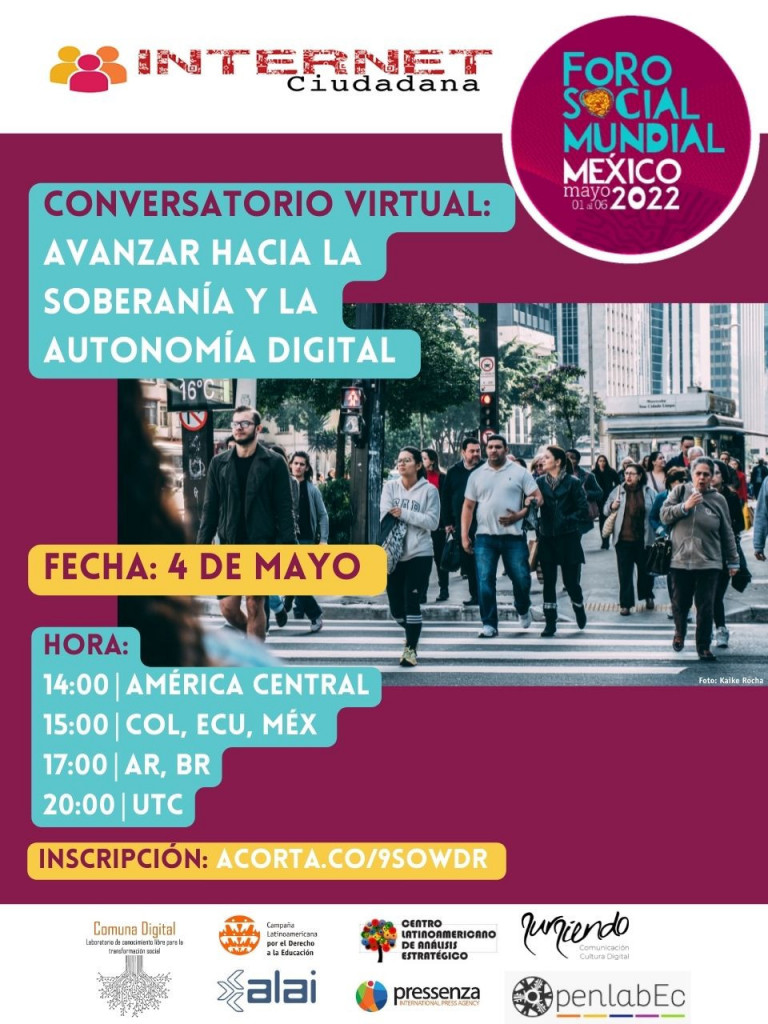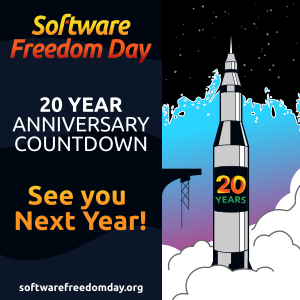
La historia de Aaron Swartz - El hijo de Internet
La vida de un jóven que esta ligada a la idea de la construcción de un internet y tecnologías libres para el bien común y a una crítica frontal al internet de espionaje del capitalismo salvaje.
La película fue estrenada bajo una licencia Creative Commons Atribución - No Comercial - Compartir Igual 3.0.
Dos opciones de descarga:
https://archive.org/.../LaHistoriaDeAaronSwartzElHijoDeIn...
https://fediverse.tv/w/0e91ee25-56bf-4a26-92a8-aabd0e09b4e8
#AaronSwartz #SoftwareLibre #CreativeCommons #CulturaLibre
Manifiesto por la guerrilla del acceso abierto
La información es poder. Pero como todo poder, hay quienes quieren preservarlo solo para ellos. Todo el patrimonio cultural y científico del mundo, publicado durante siglos en libros y publicaciones, está siendo digitalizado y cerrado por un puñado de empresas privadas. ¿Quieres leer publicaciones que presentan los resultados científicos más conocidos? Tendrás que enviarle un montón de dinero a editoriales como Reed Elsevier.
Hay quienes luchan por cambiar esto. El movimiento por el acceso abierto ha luchado valientemente para asegurarse de que los científicos no cedan su derecho de autor, sino que en su lugar se aseguren de que su trabajo se publique en Internet, bajo términos que permitan su acceso a cualquiera. Pero incluso en los mejores escenarios, su trabajo solo servirá para cosas que se publiquen en el futuro. Todo lo que existe hasta este momento se habrá perdido.
Ese es un precio muy alto por el que pagar. ¿Obligar a los académicos a pagar dinero para leer el trabajo de sus colegas? ¿Escanear bibliotecas enteras y solo permitir leerlas a la gente en Google? ¿Proporcionar artículos científicos a quienes están en universidades selectas en el primer mundo y no a los niños del sur global? Es indignante e inaceptable.
«Estoy de acuerdo», dicen muchos, «¿pero qué podemos hacer? Las empresas tienen los derechos de autor, ganan enormes cantidades de dinero cobrando por el acceso, y es completamente legal —no hay nada que podamos hacer para detenerlas—». Pero sí hay algo que podemos hacer, algo que ya se está haciendo: podemos contraatacar.
Vosotros con acceso a estos recursos —estudiantes, bibliotecarios, científicos—, os han dado un privilegio. Podéis alimentaros de este banquete del conocimiento mientras el resto del mundo no puede entrar. Pero no es necesario —de hecho, moralmente no podéis— que mantengáis este privilegio solo para vosotros. Tenéis el deber de compartirlo con el mundo. Y lo habéis hecho: intercambiando contraseñas con colegas, rellenando solicitudes de descarga para amigos.
Mientras tanto, quienes han sido bloqueados no están de brazos cruzados. Os habéis colado por agujeros sigilosamente y habéis trepando vallas, liberando la información encerrada por las editoriales y compartiéndola con vuestros amigos.
Pero todas estas acciones se llevan a cabo en la oscura y oculta clandestinidad. Las llaman robo o piratería, como si compartir la riqueza del conocimiento fuera el equivalente moral de saquear un barco y asesinar a su tripulación. Pero compartir no es inmoral —es un imperativo moral—. Solo quienes están cegados por la codicia se negarían a que un amigo hiciera una copia.
Las grandes empresas, por supuesto, están cegadas por la codicia. Las leyes bajo las que operan lo exigen —sus accionistas se rebelarían por menos que eso—. Y los políticos a los que han sobornado las respaldan, aprobando leyes que les dan el poder exclusivo de decidir quién puede hacer copias.
No hay justicia en el cumplimiento de leyes injustas. Es hora de salir a la luz y, siguiendo la noble tradición de la desobediencia civil, declarar nuestra oposición a este robo privado de la cultura pública.
Necesitamos tomar la información, dondequiera que esté guardada, hacer nuestras copias y compartirlas con el mundo. Necesitamos tomar las cosas que están libres del derecho de autor y añadirlas a este archivo. Necesitamos comprar bases de datos secretas y ponerlas en la Red. Necesitamos descargar revistas científicas y subirlas a redes de intercambio de archivos. Necesitamos pelear por el acceso abierto de guerrilla.
Con suficientes de nosotros, alrededor del mundo, no solo enviaremos un mensaje fuerte que se oponga a la privatización del conocimiento; haremos que sea una cosa del pasado. ¿Te unes a nosotros?
Aaron Swartz
Julio de 2008, Eremo, Italia






